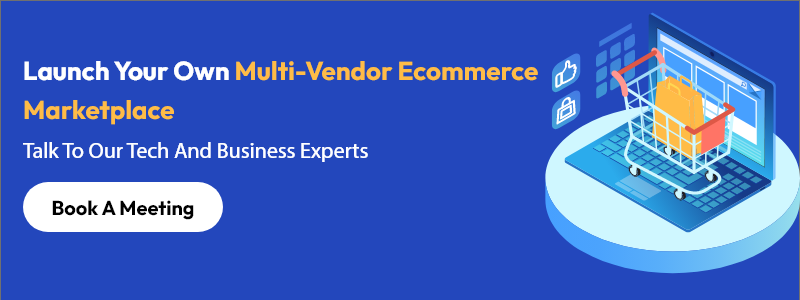The cost to build a marketplace website can vary significantly based on several critical factors such as:
Market Research: Conduct a thorough market research before embarking into development, to understand your target audience and competitors. This will help shaping the features and functionalities required for your marketplace website.
Platform Selection: Choosing the right platform for your marketplace and technology stack are crucial. A pre-built solution may be cost-effective initially, but custom development offers better scalability and tailored features, but at a higher cost.
Design and User Experience: A user-friendly and visually appealing interface is essential to attract and retain users. Investing in UI/UX design may increase upfront costs, but it can lead to higher user engagement and conversion rates.
Development Complexity: The complexity of your marketplace, the number of features you plan to implement, and the integration with third-party services can significantly impact the cost.
Core Features: Core features such as user registration, product listing, search functionality, secure payment gateways, and review systems are essential which will add to the cost to build a marketplace website.
Scalability and Performance: Anticipate future growth and ensure that the platform can handle increased traffic and transactions without performance issues may require additional investment.
Security and Compliance: Ensuring data security, privacy, and compliance with regulations can add to the overall cost, but it is critical for building trust with users.
Additional Features: Advanced features like chat/messaging systems, advanced search filters, mobile apps, and analytics will add to the cost to build a marketplace website.
Cost To Build A Marketplace Website
| Type Of Website | Cost To Build | Timeline |
| Basic Marketplace | $5,000 to $15,000 | 1 to 2 months |
| Mid-Range Marketplace | $15,000 to $40,000 | 2 to 4 months |
| Advanced Marketplace | $40,000 to $80,000 | 4 to 6 months |
Different types of marketplaces
- Business-to-Business (B2B) Marketplaces
B2B Marketplace: Alibaba
- Business-to-Consumer (B2C) Marketplaces:
B2C Marketplace: Amazon
- Consumer-to-Consumer (C2C) Marketplaces:
C2C Marketplace: Airbnb
Essential Features For A Marketplace Website
Before estimating the cost of building a marketplace website, it’s crucial to determine the essential features needed as it will add to the cost to build a marketplace website:
| Functionality | Details |
| User Registration and Profiles: | Allow sellers and buyers to create accounts with relevant information. |
| Search Functionality | Implement a robust search feature to help users find products or services easily. |
| Product Listings | Enable sellers to create detailed listings for their offerings, including images, descriptions, and prices. |
| Reviews and Ratings | Allow users to leave feedback and ratings for sellers, enhancing trust and transparency. |
| Secure Payment Gateway | Integrate a reliable and secure payment system for smooth transactions. |
Additional features to enhance user experience and engagement
A user-friendly interface is crucial for the success of any marketplace website. Users should find it easy to navigate, interact with, and accomplish their goals.
An intuitive design ensures that users can quickly grasp how the marketplace works without confusion. Keep the layout clean and organized and use consistent visual elements throughout the platform.
A significant portion of users accesses websites on mobile devices. Ensure your marketplace is responsive, adapting seamlessly to different screen sizes and resolutions for a smooth mobile experience.
To boost user engagement and satisfaction, consider incorporating the following:
| Functionality | Details |
| Social Media Integration | Users can sign up or log in using their social media accounts. |
| Real-Time Chat | Enable instant communication between buyers and sellers. |
| Wish Lists and Favourites | Allow users to save their preferred products for future reference. |
| Advanced Filtering | Offer users the ability to refine search results based on various parameters. |
| Recommendations | Implement a recommendation engine to suggest relevant products or services. |
| Clear Call-to-Action (CTA) buttons | Guide users to take the desired actions, such as “Buy Now” or “Add to Cart.” |
| Streamlined Checkout Process | Minimize the steps required for completing a purchase. |
| Easy Account Management | Provide users with a simple way to edit their profiles and preferences. |
| Error Handling | Display clear error messages and guide users on how to rectify mistakes. |
Choosing the Right Technology Stack
Selecting the appropriate technology stack is vital for the performance and scalability of your marketplace. Consider factors like security, scalability, and the expertise of your development team. Common components include web frameworks, databases, server hosting, and content delivery networks (CDNs).
Comparing different technology options (e.g., custom development, ready-made platforms) for building a marketplace.
Custom development involves building the marketplace website from scratch. This approach offers complete flexibility and customization, allowing businesses to create unique features and user experiences tailored to their specific needs. However, it can be time-consuming and costly due to the extensive development process.
Software-as-a-Service (SaaS) marketplace platforms, offer pre-built solutions that require minimal coding. These platforms often come with a range of features, making them quick to deploy and cost-effective. However, customization options may be limited, and businesses might have to compromise on certain functionalities.
Backend Development and Database Management
The backend of a marketplace website plays a crucial role in managing user accounts, transactions, product listings, and overall functionality. It is responsible for handling complex operations and ensuring smooth interactions between users and the platform.
Database Management Systems Suitable for Handling Large Volumes of Data
To accommodate large volumes of data, marketplace websites require robust database management systems. Some popular options include:
- Relational Database Management Systems (RDBMS) like MySQL and PostgreSQL for structured data.
- NoSQL databases like MongoDB and Cassandra for handling unstructured or semi-structured data.
- NewSQL databases that combine the benefits of RDBMS and NoSQL databases for high-performance applications.
Marketplace websites deal with sensitive user information, making security and data privacy paramount. Key considerations include:
- SSL encryption for secure data transmission.
- Secure authentication and authorization mechanisms.
- address vulnerabilities through security audits and updates.
- Compliance with data protection regulations.
Budgeting for Additional Expenses
Maintenance and Updates: Regular maintenance and updates are essential for the website’s security and performance. Budget around 10-20% of the development cost annually for these tasks.
Customer Support: Allocate funds for providing efficient customer support to vendors and users.
Marketing and Promotion: Plan marketing expenses to attract users and vendors to your platform. Social media, content marketing, and advertising are potential avenues.
Conclusion: Cost to build a marketplace website
Building a marketplace website involves careful planning, incorporating essential features, prioritizing user experience, backend development, and database management. While custom development provides total control, ready-made platforms offer quick deployment and cost-effectiveness. Scalability and future-proofing considerations are essential for sustained growth.
A robust backend ensures smooth marketplace operations, and suitable database management systems handle large data volumes. Additionally, prioritising security and data privacy safeguards the platform and instils trust among users. Choosing the right technology stack ensures a robust and scalable website that can handle increasing user demands.
By carefully evaluating these factors, businesses can make informed choices that align with their budget and long-term goals for a successful marketplace venture.

After an Engineering degree and a Diploma in Management I devoted 16+ years working in the automotive industry. My innate skill and extreme passion in writing, encouraged me to adopt it up as a profession. I have been writing for more than 10+ years in the software industry. The 400+ blogs I published are informative, exhaustive and interesting to a professional and causal reader.









